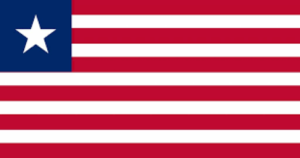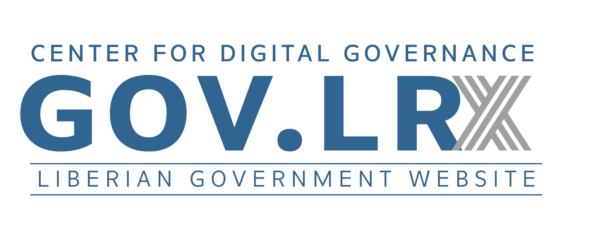About Us
Overview and History
The establishment of the Code of Conduct in Liberia marks the culmination of a journey that spans over 45 years, rooted in the country’s pursuit of ethical governance and accountability in public service. It is believed that the foundation for this office was laid in 1979, following Liberia's Rice Riots—a significant event that highlighted pressing socioeconomic grievances and governance issues. In response, the government appointed the Netty Brownell Committee to investigate the unrest. This committee’s landmark recommendation included establishing a public policy framework to prevent conflicts of government interest, which set the stage for what would later become Liberia’s Code of Conduct to be administered by the Office of the Ombudsman. This was followed by other efforts such as the contracts and monopoly commission (CMC) in 2003 which set the basis for the establishment of the office
Constitutional Foundations and the 1986 Mandate
In 1986, six years after the Brownell Committee’s recommendations, Liberia adopted a new Constitution. Article 90 of this new Constitution prohibited public officials from engaging in activities that would create conflicts of interest, mandating the Legislature to establish penalties and prohibitions for such misconduct. This provision was a pivotal step toward codifying ethical standards for public servants, embedding these principles within Liberia’s legal framework. However, despite this mandate, progress in developing a comprehensive Code of Conduct and an operational oversight body remained stagnant for nearly three decades.
The Birth of the Code of Conduct and the Ombudsman’s Office (2014)
After 28 years of advocacy and legislative deliberation, Liberia passed the Code of Conduct Act in 2014 during the Presidency of Africa’s first female democratically elected President. This Act established the Office of the Ombudsman as an independent oversight body, charged with enforcing ethical standards across government institutions and private actors institutions. The Code sought to uphold principles of transparency, accountability, and integrity in public service by defining acceptable conduct for public servants. Despite the formal establishment of the Ombudsman’s Office in 2014, as the administrator of the Code of Conduct, it remained largely inactive due to delays in appointing essential leadership and securing operational resources.
Legislative Amendments (2017 and 2022)
To enhance the functionality of the Code of Conduct and the operation of the Office of the Ombudsman, two key amendments were made to the Code of Conduct. The First Amendment in 2017 provided a detailed operational framework for the Office, outlining its structure, mandates, responsibilities and transferred specific administrative duties to Liberia Anti-corruption commission on asset declaration and the National Elections Commission (NEC) to handle elections related ethical matters. The Second amendment of 2022 shortened the mandatory resignation period for public servants seeking elective office from two years to one.
Operationalization under President Boakai (2024)
After years of stalled progress, the Office of the Ombudsman was finally operationalized in August 2024. Newly elected President Joseph Nyuma Boakai, Sr. demonstrated a strong commitment to ethical governance by appointing key leaders to bring the Office to life. On April 5, 2024, Cllr. Finley Y. Karngar was appointed as Chairperson of the Office, with Cllr. Lami Kpargoi and Atty. Etmonia Martin was named as Deputy Ombudsman subsequently. These appointments marked a transformative moment, signifying Liberia’s readiness to enforce its Code of Conduct and promote diligence and discipline corps of public servants at all levels of governance.
Foundational Activities and Progress (May–November 2024)
With its leadership in place, the Office of the Ombudsman embarked on building its organizational and operational framework from May to December 2024. Though being allocated a modest budget of $100,000 by the National Legislature, President Boakai provided a grant of US$138, 875.00 for the operationalization of the Office. The Office began to establish its priorities with the support of professional volunteers, including Mr. Saa David Nyuma Jr., Mr. Amos Williams, Ms. Angeline McGill, Samuel Cummings, Mr. Siewon T. Seidi, Amb. R. Van Ross, and Atty. Jeremiah Dugbo. This early team
Foundational Activities and Progress (May–November 2024)
With its leadership in place, the Office of the Ombudsman embarked on building its organizational and operational framework from May to December 2024. Though being allocated a modest budget of $100,000 by the National Legislature, President Boakai provided a grant of US$138, 875.00 for the operationalization of the Office. The Office began to establish its priorities with the support of professional volunteers, including Mr. Saa David Nyuma Jr., Mr. Amos Williams, Ms. Angeline McGill, Samuel Cummings, Mr. Siewon T. Seidi, Amb. R. Van Ross, and Atty. Jeremiah Dugbo. This early team played a critical role in evolving a strategic direction including lobbying, developing a comprehensive work plan that outlined the office’s strategic direction emhpasizing public engagement, learning adapting and office setup. Subsequently, these efforts established the basis for the implementation of the office’s mandate.
The Office quickly initiated collaborations with both state and non-state actors across Liberia’s three branches of government, and individuals to foster a cooperative approach in fulfilling its mandate. Local partners, including CENTAL, the Ducor Institute, the Center for Media Studies and Peace Building, and NAYMOTE, played a significant role in the establishment of the Office of the Ombudsman, providing crucial support and contributions to its foundation and development.
Additionally, partnerships with international organizations, such as US embassy/USAID, World Bank, French Embassy, Sierra Leone Embassy, were established to secure support for governance reforms, further bolstering the Office’s capacity to promote diligence and discipline.
A New Era of Accountability
As Liberia commemorates 45 years since the concept of a public policy framework for conflict-of-interest prevention was first proposed, the operationalization of the Office of the Ombudsman under Chairperson’s represents a milestone in the country’s pursuit of ethical governance. The Office is now poised to uphold ethical standards through independent oversight, transparent processes, and accessible complaint mechanisms to contribute to public trust building for government functions…”the establishment of the Office of the Ombudsman symbolizes Liberia’s commitment to addressing longstanding governance challenges. With its foundation now firmly in place, the Office stands as a guardian of integrity and accountability, ushering in an era where ethical governance is rigorously enforced across all levels of public service, strengthening public trust in Liberia’s democratic institutions”.


